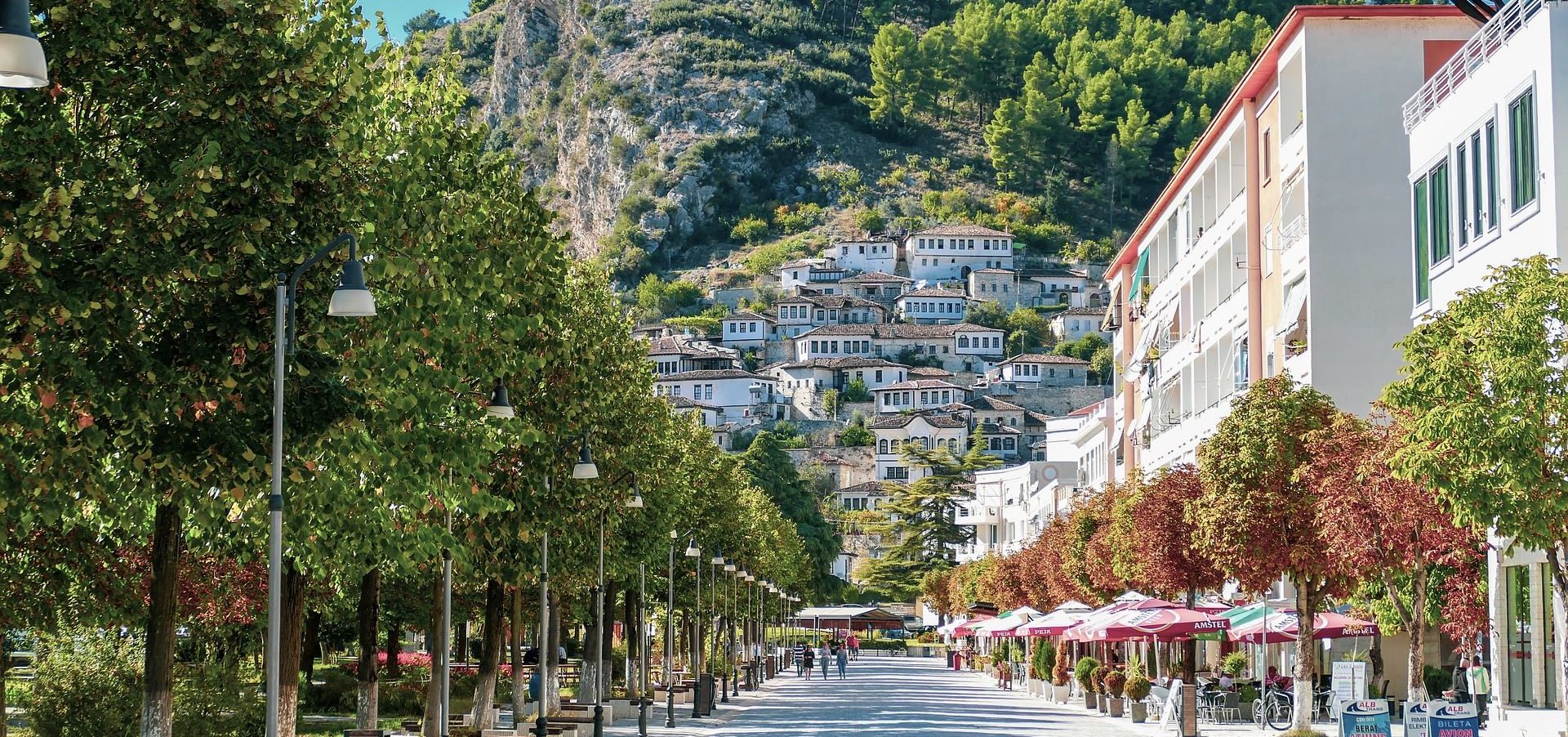Why isn’t it? Powerful interests in the energy sector see renewables in terms of hydro, hydro, and more hydro. It’s not what the country – or the region — needs, says Paul Hockenos.

Sunshine in abundance: Albania could cover its own energy consumption with solar energy (Public Domain)
Travelling through Albania’s verdant countryside in spring is an unusual delight. Its rough beauty has yet to be discovered by tourist masses; its broad, meandering rivers are still among the last free-flowing waterways in all of Europe, full of flora and fauna unknown to the rest of the continent.
Yet there’s a painful side to it, too, especially for advocates of renewable energy. There are few countries in Europe so suited for renewables as Albania: sunlight in vast abundance, wind in the mountain ranges and along the coast, high peaks with steep, vertical cliffs, and hot springs that signal rich geothermal resources below. The ubiquitous farmlands obviously have access to tremendous quantities of biomass. Moreover, forests cover around 36 percent of the country’s territory.
Indeed Albania, like almost all of the Balkans, is a wonderland of potential for clean energy production. According to a European Commission report, “Albania thanks to its geographical position and natural resources has a high development potential to exploit country renewable resources.” Another report concludes: “Renewable energy investment can also create a broad range of ancillary benefits for Albania, including energy self-sufficiency, improved grid reliability, and job creation.“
What makes it all so painful is that this enormous potential, enough to cover domestic needs and even to export energy to western Europe, is almost completely untapped. In this impoverished, struggling country, there is wealth lying just about everywhere you look and yet no one is earning a pfennig from it. Even the most obvious no-brainer – namely solar thermal energy – is found on rooftops only sporadically in the north, and not at all in the south. The contrast to Italy and Greece, where rooftop solar thermal systems are commonplace, is glaring.
The Albanians aren’t completely oblivious to this largesse. Afterall, hydropower already covers 20 percent of their electricity consumption and constitutes nearly 97 percent of its domestically generated electricity. When the power plants aren’t operational, which is well over half the year at times of low precipitation, Albania imports prodigiously and at great cost from neighbors with coal-fired capacity. Not surprisingly, when Albanians think of adding more renewable energy to their portfolio, they think of more hydro. Yet damming the last pristine rivers of Europe, such as the spectacular Vjosa River, is no solution. Albania needs energy sources that provide it with power when the hydro plants aren’t operational. The answer is solar, wind, and geothermal power, all of which can even be stored at high altitudes in Albania with pumped-water storage systems. Indeed, Albania is made for renewable energy.
I was well perplexed with this unsatisfactory state of affairs when I beat a path to the office of Albania’s ministry of environment. One of its officials, Zamir Dedej, agreed to meet with me (I had no such luck in Serbia where a bevy of my emails were completely ignored.) He said he was all for renewables but that Albania wasn’t ready yet for the likes of solar PV systems and wind turbines. For one, he said, they’re too expensive. And, secondly, Albania’s transmission grid is so antiquated that it can’t handle feed-ins from independent producers. This is why Albania, being a good European and aspiring to EU accession status, is concentrating on hydropower.
Mr. Dedej is himself a friend of Albania’s rivers, he says, but the government he serves is vocally pro-hydro (even though the ruling party ran on an anti-dam platform two years ago. It flip-flopped almost immediately after coming to power and doles out copious hydropower concessions before elections).
As it happens, Mr. Dedej’s objections are paper tigers. Cost-wise, solar PV and onshore wind are now cheaper than coal. In a country with so much year-around solar radiation (sun light) investments in solar thermal and PV infrastructure would pay themselves off in just a handful of years. If the requisite legal framework was in place, banks could make safe loans to small-scale producers knowing with virtual certainty that they’d be paid back on time. After all, if countries like India, Ghana, and Bangladesh are rolling out rooftop solar at breakneck speed then so can the countries of South Eastern Europe (In Bangladesh, over 5.2 million small-scale solar home systems provide electricity to almost 12 percent of Bangladesh’s 160 million people).
As for Dedej’s contention that the Albanian grid is aged and breaking down – it’s true. But this shouldn’t impede feed-in from independent producers. In fact, grid-linked renewables and off-grid clean energy would serve to stabilize the grid and work toward preventing black and brownouts, which are regular.
The real reason for Dedej’s protestations is the immense power of the hydropower and construction lobby in Albania. They see hydroelectric plants as a cash cow too lucrative to abandon. The government sees billions in tax revenue and kickbacks for concessions. Moreover, Albania’s national energy company, Korporata Elektro-energjetike Shqiptare, a dinosaur still standing from the communist era, remains the sole energy utility in the country.
This standstill could end if the government wanted to shake up its energy sector. In line with its gradual harmonization with EU law, Albania has already passed legislation for opening up its energy markets to renewables and for diversifying the country’s producers. The first solar park, a 100 MW station worth €70 million, is scheduled to be built near Vlora. It could go further by adopting the tenets of the EU’s new Clean Energy for All Package directive, which stipulates that all EU countries amend their markets to enable community-owned energy and other kinds of small-scale renewables production.
If Albania did this, and smoothed the way for the financing of renewables projects, clean energy generation would take off in the country – to the benefit of just about everyone in Albania.